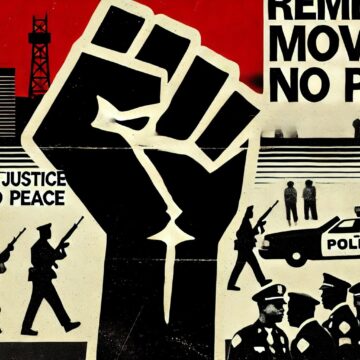The 1985 MOVE bombing in Philadelphia stands as a stark example of the intersection between race, state violence, and urban policy in the United States. When the city dropped a military-grade bomb on the home of the Black liberation group MOVE, killing 11 people, including five children, and destroying 61 homes, it revealed the devastating consequences of police militarization and systemic racism. This event, which still resonates in the era of Black Lives Matter, highlights the ongoing struggles for police reform, racial justice, and governmental accountability in marginalized communities.
